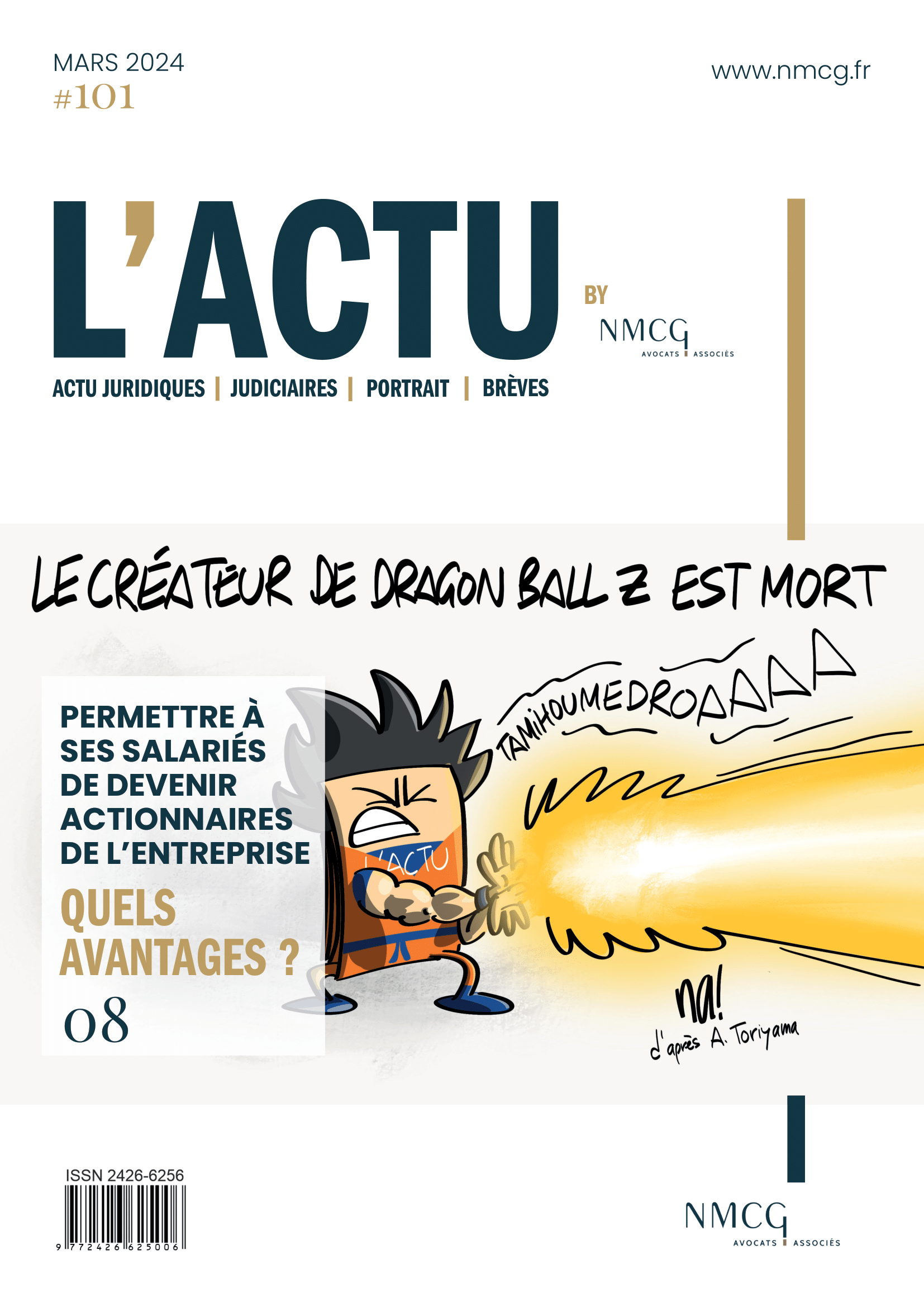Prescription and force majeure: the Court of Cassation opens the Pandora’s box
28 February 2023
Cass soc. January 25, 2023 n° 21-17.791
Who hasn’t heard about the prescription lately?
Indeed, this general principle of law, which designates the duration beyond which a legal action cannot be initiated, has recently given rise to lively debates, with some (particularly lawyers) ardently defending it, while others constantly question it, considering that it constitutes an infringement of the right to act.
However, this principle, which can be found in all areas of law (criminal, civil, or labor law …) is particularly important, especially with regard to the consequences that its application entails, so it seems important to master the rules.
I. The rules of prescription in labour law
There are different specific limitation periods in labor law, depending on the nature of the employee’s challenge.
The Labor Code provides in part that:
- any action relating to the termination of the employment contract is prescribed by 12 months from the notification of the termination ( trav. art. L.1471-1) ;
- any action relating to the performance of the contract shall be barred after 2 years from the day on which the person exercising it knew or should have known the facts enabling him to exercise his right ( trav. art. L.1471-1) ;
- any action for payment or recovery of wages is prescribed by 3 years from the day when the person exercising it knew or should have known the facts allowing him to exercise it ( trav. art. L.3245-1) ;
- any action relating to a discrimination is prescribed by 5 years as from its disclosure ( trav. art. L.1134-5).
In view of these rules, if the employee’s action has not been brought within the above-mentioned time limits, it is necessarily inadmissible, unless the employee was unable to act due to an impediment resulting from the law, the agreement or force majeure, in which case the course of the statute of limitations is suspended (Civil Code art. 2234).
While the first two causes of suspension remain clearly defined concepts, force majeure, which is assessed by the courts on a case-by-case basis, appears to be more difficult to grasp, particularly with regard to the criteria that define it, i.e. unpredictability, irresistibility and exteriority.
Therefore, the question arises as to which situation is likely to characterize a force majeure event?
The Court of Cassation provided further clarification on this point in an unpublished decision of January 25, 2023, which could have gone unnoticed (as it was rendered in a restricted formation and was not published), but whose solution could potentially initiate a real turnaround if it were subsequently confirmed.
II. On the solution rendered by the Court of Cassation in its decision of January 25, 2023
In this case, an employee had been dismissed for real and serious cause by registered letter with acknowledgment of receipt dated November 2, 2015, her employer reproaching her for various failures in the performance of her assignments.
On February 2, 2018, the employee brought an action before the industrial tribunal to contest the termination of her contract, i.e. beyond the limitation period provided for in Article L.1471-1 of the French Labor Code (it being specified that the version of this article applicable at the time of the dispute provided for a limitation period of 2 years).
By judgment of October 21, 2019, the panel of the Nancy industrial tribunal (which was therefore presided over by a professional magistrate) had declared the employee’s action inadmissible as time-barred.
The employee appealed this judgment.
On appeal, she claimed:
- that her employment contract had been suspended until May 12, 2016 (the date on which the CPAM’s Amicable Appeal Commission rejected her request for coverage under occupational legislation for her accident that occurred on November 2, 2015) and that the effects of her dismissal had been postponed until the end of the period of suspension of her employment contract pursuant to Article 2234 of the Civil Code ;
- that in any case, she had found herself ” between 2016 and 2018, in total incapacity to manage her administrative procedures, being victim of administrative phobia following her burn out in July 2015 and of panic attacks with an aggravation of her condition in February 2016“, thus invoking here the force majeure.
The company argued that it had been informed of the employee’s accident after the letter of dismissal was sent and contested the force majeure invoked by the appellant, by virtue of which she would have been unable to bring the matter before the Labor Court before February 2, 2018, due to her illness.
In a decision rendered on April 15, 2021, the Court of Appeal did not accept the employee’s first argument, ruling that her employment contract had already been terminated at the time she informed the employer of her accident.
However, in view of the medical certificates from her psychiatrist that she had produced, the judges accepted the second plea in law, considering that the employee’s state of health and its worsening in 2016 constituted a force majeure and had ” prevented from initiating any proceedings, suspending the statute of limitations on the action to contest his dismissal between the date of his dismissal, subsequent to his hospitalization for burnout, and the date of his referral to the industrial tribunal”..
The Court of Appeal therefore declared the action admissible and found that the dismissal lacked real and serious cause, ordering the employer to pay the employee various indemnities.
The employer then filed an appeal in cassation.
In the High Court, the employer :
- argued that the employee’s state of health did not constitute a case of force majeure, insofar as on February 10, 2016, she had sent him a detailed letter contesting the effective date of her dismissal, requesting her reinstatement,
- also criticized the medical certificates produced by the employee.
However, the Court of Cassation rejected this argument put forward by the company (although it did quash and annul the appeal decision with regard to a second argument raised by the employer that is not the subject of this article).
Specifically, the Court, relying on Article 2234 of the Civil Code, repeated the findings made by the Court of Appeals that the employee demonstrated that she was unable to act due to the worsening of her health condition as of February 2016, so that her action filed in February 2018 was admissible.
Thus, the social chamber of the Court of Cassation admits, to our knowledge for the first time, that the employee’s state of health can justify the suspension of the limitation period in matters of contestation of dismissal.
This solution appears to be in contradiction with the position adopted until now by the Court of Cassation, since the latter, which only very rarely recognizes the case of force majeure, had in the past specified that :
- did not characterize an impossibility to act suspending the prescription period:
- isolation, family responsibilities and low cultural level of the employee ( Soc. April 26, 1984, n° 82-15.956) ;
- the applicant’s uncertainty about his or her legal status ( Soc. November 17, 2010, n° 09-65.081).
- the suspension of the running of the statute of limitations does not run when the holder of the action still had, at the cessation of the impediment, the time necessary to act before the expiration of the statute of limitations ( Civ 1st, March 13, 2019, 17-50.053 It should be noted that in this case, the appellant invoked the suspension of the statute of limitations due to his successive periods of hospitalization.)
Above all, although there is no question of contesting the employee’s state of health in this dispute, the fact that this characterizes a case of force majeure is nonetheless open to criticism, as it potentially leads to a significant change in the rules for characterizing this notion, and ultimately calls into question the principle of prescription.
Such a solution could indeed necessarily lead to abuses, all the more so in view of the resurgence of medical certificates of convenience.
Will it now be enough for an employee to provide a simple medical certificate to get around the rules on prescription?
Only time will tell.
What is certain is that such a decision, albeit isolated, brings a lot of uncertainty about the application of the statute of limitations that employers could have done without.






























